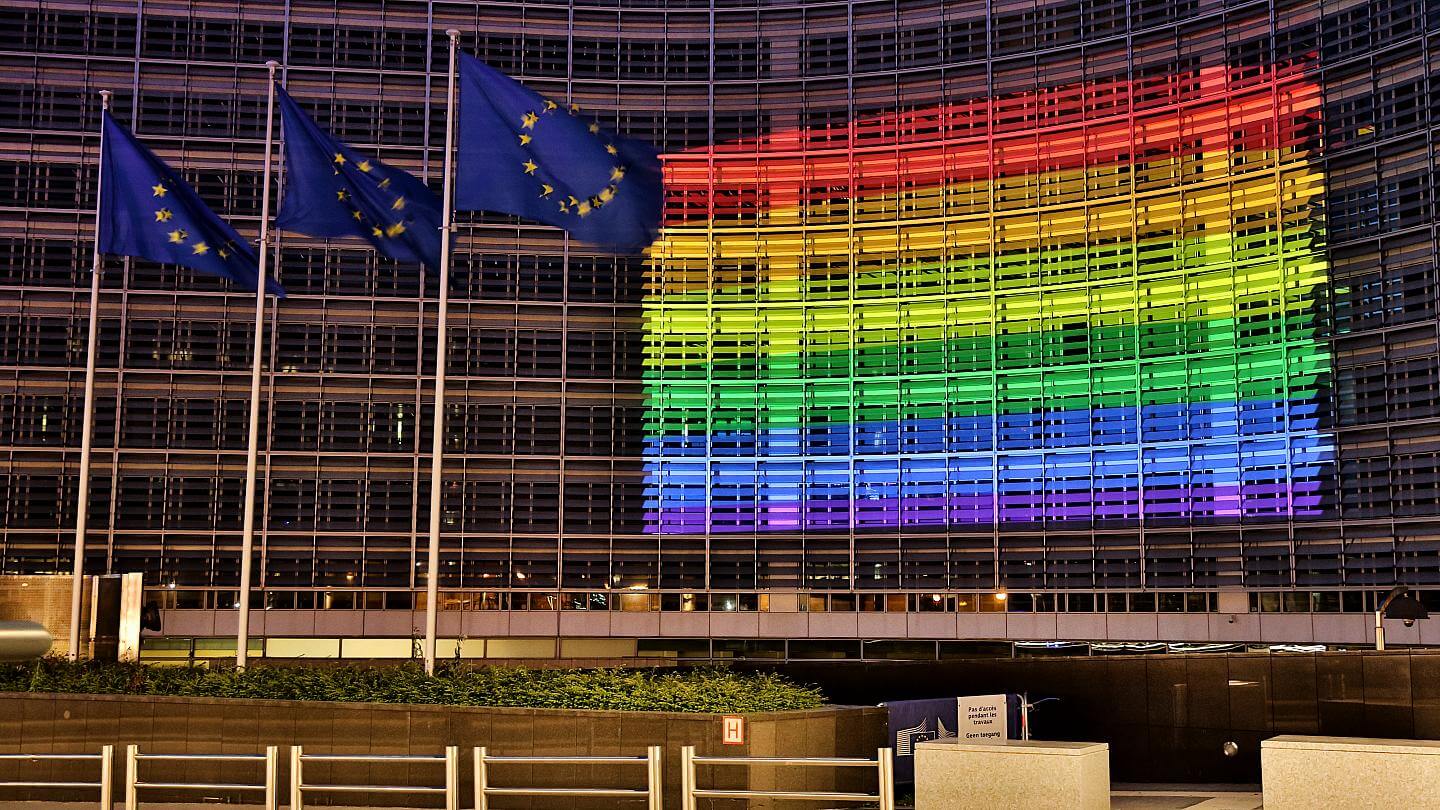The European Union (EU) on Thursday unveiled a new strategy aimed at protecting and strengthening the rights of the LGBTQ+ community. The five-year plan includes legislative and financial support for lesbian, gay, bisexual, transgender, non-binary, intersex, and queer people, and appears to be particularly aimed to oppose right-wing governments in Hungary and Poland that have promoted discrimination.
The proposal presented by the European Commission (EC) will add hate crimes, including homophobic speech, to the EU crimes list, as well as institute measures to support parental rights for same-sex families. The plan also promises more funding for organizations promoting equality.
“Everyone should feel free to be who they are – without fear or persecution. This is what Europe is about and this is what we stand for,” Vera Jourova, the commission’s Vice President for Values and Transparency, said as part of a statement. While noting the progress made regarding LGBTQ+ rights, Jourova said the measures followed “worrying trends”, with the EU Agency for Fundamental Rights reporting that 43% of LGBTQ+ people had declared feeling discriminated against in 2019, compared with 37% in 2012. She also stated that the commission was following developments in Hungary and Poland, where the governments have engaged in harsh rhetoric against the community.
Both Poland and Hungary have been at odds with the EU’s executive branch over a range of issues pertaining to the rule of law, the independence of the judiciary, and the rights of minorities. Though Warsaw and Budapest have described those principles as “foreign ideology”, most European countries and institutions view them as fundamental to the bloc’s beliefs.
Poland is currently facing the biggest protests in the nation since the fall of communism in 1989. The demonstrations, which began as a defense of women’s sexual and reproductive rights after a top court’s decision to ban nearly all abortions, have grown to include calls for the protection of LGBTQ+ people. President Andrzej Duda has supported and fiercely propagated an anti-LGBT ideology in recent months, and has vowed to ban the teaching of gay rights in school. Earlier this year, some Polish towns also declared themselves “LGBT-free zones”, which led to EU funding cuts, but the government compensated them.
In Hungary, Prime Minister Viktor Orbán’s government has increasingly used anti-LGBT rhetoric as part of a perceived culture war against anyone who does not fit into its definition of a “traditional family”. Described as an illiberal democracy first, Orbán now prefers to call his system of government a “Christian democracy”, with strong support for his regressive policies from the Hungarian Catholic Church. Earlier this week, his administration proposed draft legislation to ban same-sex couples from adoption along with a constitutional amendment forcing families to raise children in Christianity-prescribed gender roles. Legal recognition for transgender people was also ended in the country in May.
However, the EC’s Jourova said on Thursday that hate and discrimination against people from sexual minorities did not belong in Europe, especially in 2020. “We will defend the rights of LGBT people against those who now have more and more appetite to attack them from this ideological point of view. This belongs to the authoritarian playbook and it does not have a place in the EU,” she said. She noted that while family law was the member states’ prerogative, the countries must respect their international human rights obligations and applicable EU law.
EU Unveils Strategy to Protect and Strengthen LGBTQ+ Rights
The five-year plan includes legislative and financial support for lesbian, gay, bisexual, transgender, non-binary, intersex, and queer people.
November 13, 2020

SOURCE: EURONEWS
